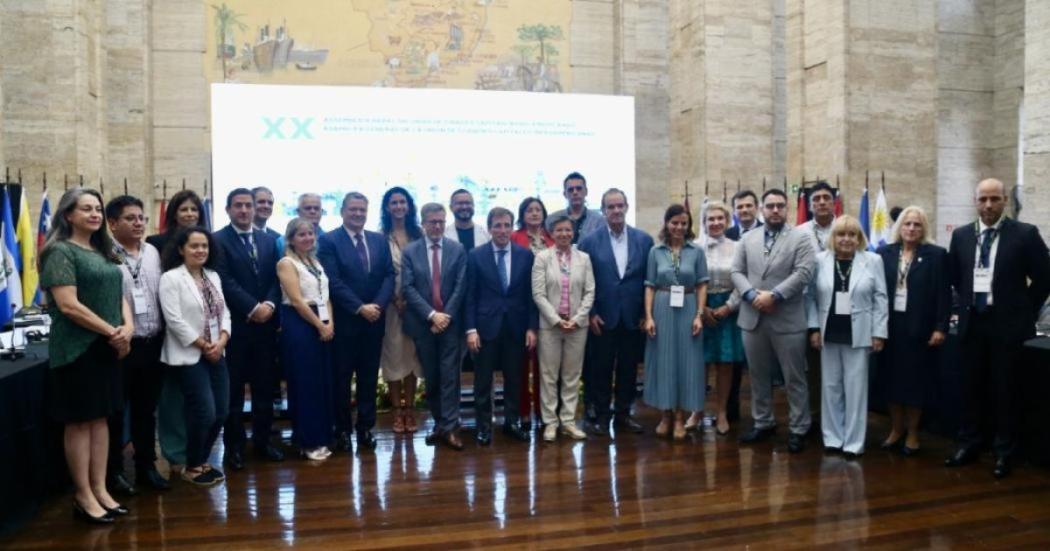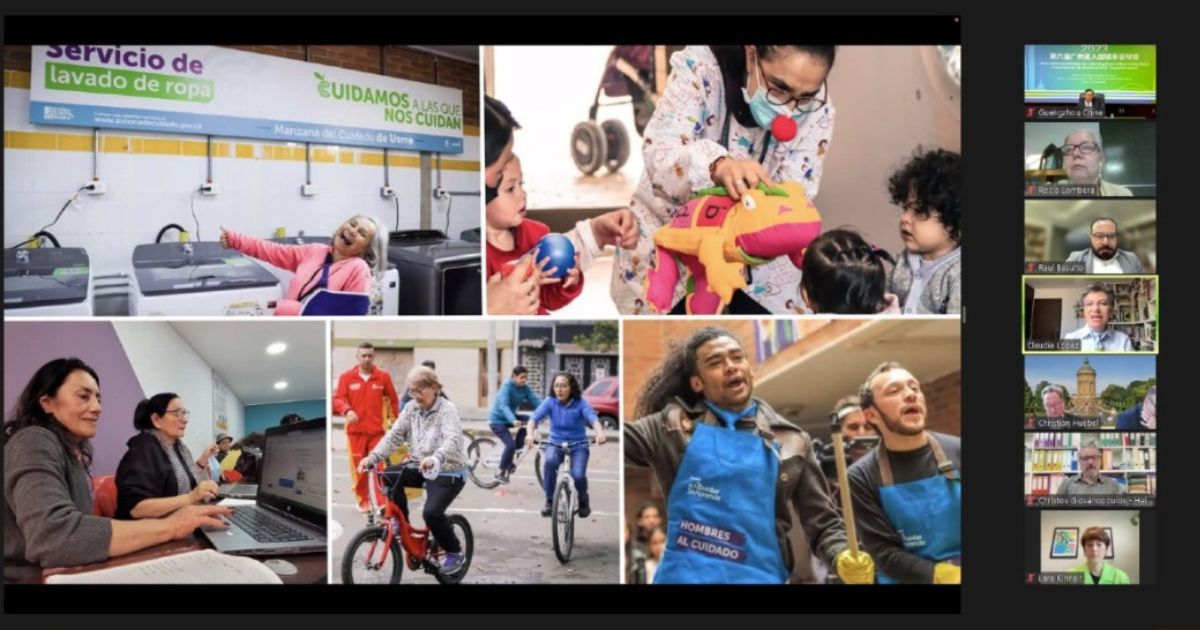Bogota's Mayor, Claudia Lopez Hernandez, took part in the 20th General Assembly of the Union of Ibero-American Capital Cities (UCCI), held in Sao Paulo, Brazil. There, 20 delegations from the cities that make up this multilateral organization were present.
"Our networks, in addition to the valuable technical exchange, also serve a role in political dialogue regarding global challenges. I believe that the future of humanity depends on local and national governments being able to solve specific problems for people," she emphasized.
Thus, under the premise "Ibero-America: a diverse region for a future of shared prosperity," the event served to define the new areas of focus for the organization, where entrepreneurship, innovation, and tourism will play a fundamental role. The UCCI General Assembly provided a forum for government leaders from Ibero-American capitals to discuss the challenges, needs, and shared goals facing their communities amid the current global situation.
"It's challenging for our democracies, with short terms, limited budgets, and political and ideological polarization, to resolve these tensions. Frankly, I believe it is us, the mayors, who are in close proximity to addressing specific needs in the everyday lives of our people, those of us who experience this daily reality, who can have a more practical, concrete, direct vision," she pointed out.
At the same time, the assembly gave the green light to an event that will have a significant impact on the fate of Ibero-American capitals: the establishment of the Ibero-American Cities Meeting. This event will be incorporated institutionally and financially into the Summit of Heads of State and Government of the Ibero-American Conference, taking place simultaneously with its official program. The resolutions and agreements reached by the member cities of the UCCI at this meeting will be presented at the Conference, allowing cities to have an active voice at the municipal level and strengthen their international presence.
"Cities are powerful economic hubs. If we had fiscal autonomy with clear rules, we could address the challenges of providing quality services that our citizens need. Give cities clear rules for accessing resources from multilateral organizations," she emphasized.
Another crucial agreement was also reached with the aim of promoting bilingualism and strengthening the role of the two official languages in the Ibero-American region, spoken by 800 million people worldwide; in this regard, the year 2024 was designated as the Year of the Portuguese Language, planning various events in the coming months to highlight the value of Portuguese. In the closing of the forum, it was established that, along with Madrid, the cities of San Salvador and Sao Paulo will assume co-presidency of the UCCI for the next two years.
This international organization has a municipal character and promotes solidarity and cooperation among Ibero-American peoples. For this reason, it has been a fundamental ally for Bogotá since 1982, assisting the city in realizing important initiatives in areas such as climate action, mental health, tourism, circular economy, and transparency, thanks to the cooperation and support of the UCCI.
Claudia López also attended the UCCI Executive Committee in her capacity as Vice President for Social Policy and Well-being, during which the new leadership positions of the organization were approved, and the foundations of the new 2024-2027 strategy were laid out.
Mayor Claudia López's agenda in São Paulo represented a new step towards Bogotá's goal of positioning itself as a global reference in achieving the Sustainable Development Goals (SDGs).








